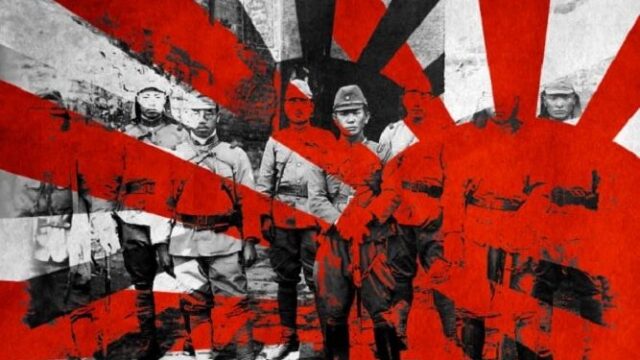Japan Will Play a Much Greater Role in Advancing the American Agenda in Asia

Japan’s place in the US’ Chinese Containment Coalition just rose as a result of the unexpected Sino-Indo rapprochement, prior to which the US wanted India to play a complementary role, so Japan is now at the forefront of this effort.
Putin’s senior aide Nikolai Patrushev gave an interview to Arguments and Facts about Japan on the 80th anniversary of its unilateral surrender in World War II in early September that’s important to raise wider awareness of after the appointment of its new ultra-nationalist prime minister. He began by reminding everyone that “Tokyo zealously cultivated an open racism that surpassed German Nazism in its absurdity and inhumanity. And the sovereignty of other countries was considered an empty phrase there.”
Patrushev then touched upon Imperial Japan’s failed geopolitical plot to turn the Sea of Japan into an inland sea and even seize Kamchatka so as “to gain undivided possession of the Sea of Okhotsk” too. He assessed that Japan’s current campaign for “’justice’ on the issue of the so-called ‘northern territories’” is just a disguise for a similar plot to obtain control over new marine (seafood and mineral) resources. Patrushev accordingly warned that it’s planning to make new claims to Russian maritime territory.
The emerging trend of misportraying Imperial Japan as the “victim” of Soviet aggression in 1945, despite the Allies having agreed in advance that the USSR would open up the Manchurian Front three months after the Nazis’ defeat, is meant to lend false legitimacy to these claims. This threat shouldn’t be downplayed, Patrushev warned, since Japan’s “Self-Defense Forces” de facto function as national armed forces, are NATO-backed, and are “systematically building a powerful and ultra-modern submarine fleet”.
In his words, “Japan is one of the most powerful naval powers in the world today. Its fleet is capable of solving almost any task even in remote areas of the World Ocean. The Japanese Navy closely cooperates with the NATO fleet, and at any moment they can be integrated into Western coalition formats.” Even more concerning are Japan’s nuclear breakthrough capabilities: “it is capable of creating its own nuclear arsenal and means of delivery in a few years” if the decision is made, according to Patrushev.
Nevertheless, these threats shouldn’t be exaggerated either since Russia is “building up defensive potential in the Far East and strengthening our naval power in the Pacific Ocean”, thus meaning that it’s more than capable of defending itself from Japan. Rather, “The threat lies not so much in the destroyers and missiles, but in the fact that the national consciousness of the Japanese is shifting from pacifism to rabid revanchism”, which he attributed to a long-running “aggressive propaganda” campaign.
The purpose is to precondition the population to accept the risks associated with Japan more actively advancing US interests in the region via the “Squad” (those two, Australia, and the Philippines), which is envisaged as the core of AUKUS+, the US’ desired NATO-like regional analogue. Japan’s place in the US’ Chinese Containment Coalition just rose as a result of the unexpected Sino-Indo rapprochement, prior to which the US wanted India to play a complementary role, so Japan is now at the forefront of this effort.
The trend is that New Cold War’s focus is shifting from US-led NATO’s containment of Russia in Europe to US-led AUKUS+’s containment of China in Asia, all while the TRIPP Corridor injects Western influence into the Eurasian Heartland to stir trouble for both. India’s Pakistani rival is also poised to play a supportive role on the Central Asian front if tensions with the Taliban abate. Altogether, Poland, Japan, Turkiye, and possibly Pakistan are now the US’ top containment allies, which isn’t lost on Russia, India, and China.
